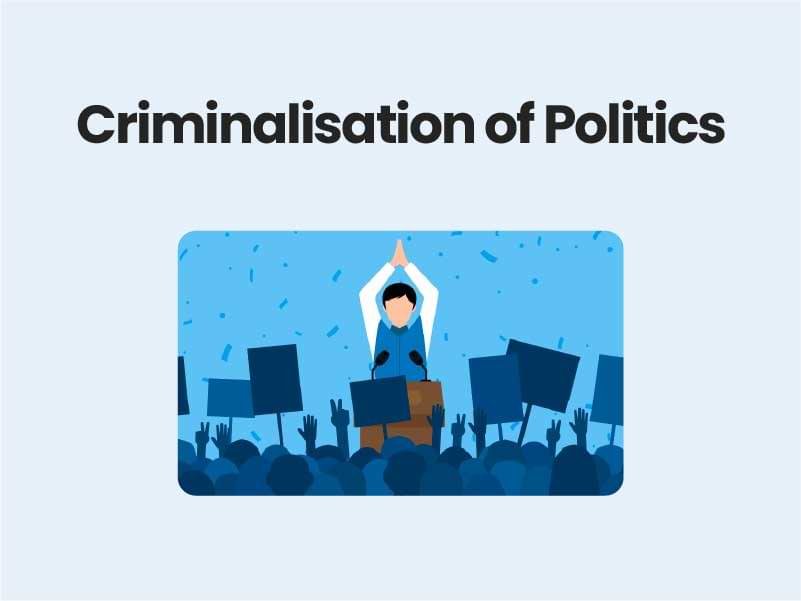
Criminalisation of Politics
- According to recent findings, 46% of Members of Parliament have criminal records and among Loksabha MPs 29% are with serious declared criminal cases such as murder and rape.
- Researchers have found that such candidates with serious records seem to do well despite their public image, largely due to their ability to finance their own elections and bring substantive resources to their respective parties
- Voters view their candidates through the narrow prism of parochial interest such as caste, religion etc.
- No real choice for the voters to elect from.
- India is the only democratic country with a free press where we find a problem of this dimension.
- The growing criminalisation of politics is an unhealthy tendency in a maturing democracy.
February 2020 SC judgement on Criminalisation of politics
- The judgement was on a contempt petition filed by advocate Ashwini Upadhyay about the general disregard shown by political parties to a 2018 Constitution Bench judgment (Public Interest Foundation v. Union of India) to publish the criminal details of their candidates in their respective websites and print as well as electronic media for public awareness.
- SC ordered political parties to publish the entire criminal history of their candidates for Assembly and Lok Sabha elections along with the reasons that goaded them to field suspected criminals over decent people.
- For the first time, the political party and its leadership would have to publicly own up to criminalisation of politics.
- The information should be published in a local as well as a national newspaper as well as the parties’ social media handles.
- It should mandatorily be published either within 48 hours of the selection of candidates or less than two weeks before the first date for filing of nominations, whichever is earlier, failing to whisk attracts contempt of court.
- The judgment is applicable to parties both at Central and State levels.
- In 2013 judgement SC removed the statutory protection for convicted legislators from immediate disqualification.
- In 2014 SC directed the completion of trials involving elected representatives within a time frame of a year.
- In 2017, asked the centre to appoint special courts to exclusively try cases against politicians.
- In 2018, directed political parties to publish the criminal antecedent of their candidate before public via newspaper, party website and social media.
- SC issued directions to ensure the asset disclosure and criminal records of candidates during filing of nominations and the incorporation of the ‘none of the above’ option in the voting machine.
- While judicial pronouncements on making it difficult for criminal candidates to contest are necessary, only enhanced awareness and increased democratic participation could create the right conditions for the decriminalisation of politics.
- Whatever progress made towards decriminalisation of politics were through the initiative of SC and Election Commission, a more meaningful effort from political parties and voters are needed.
Enroll today with the best civils service academy and take your first step towards your Civils journey.
Feel free to reach out to us for any inquiries, collaborations, or support. We’re here to help.

